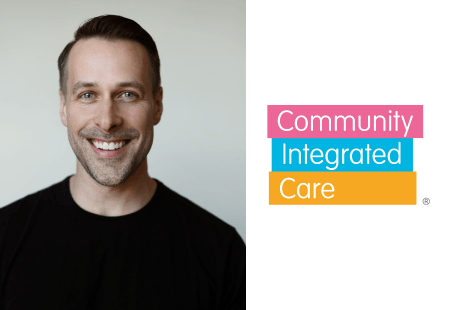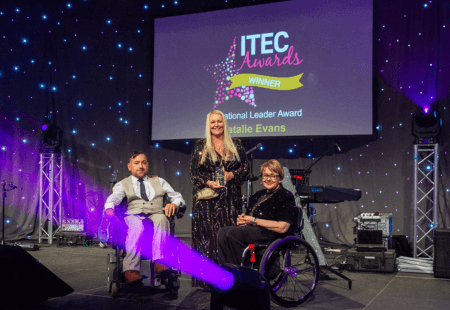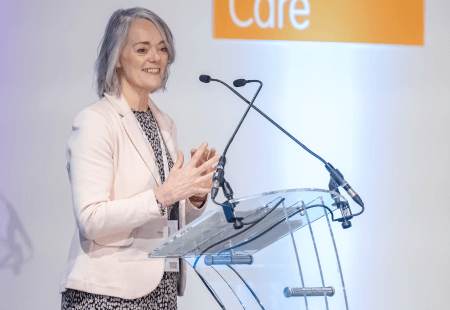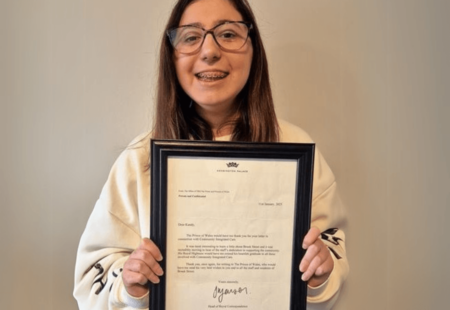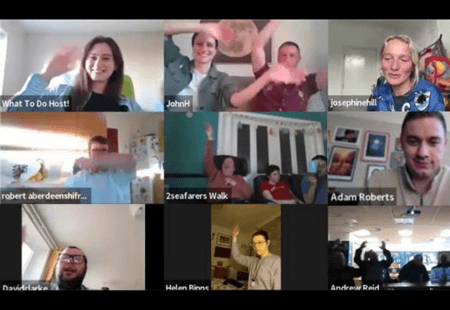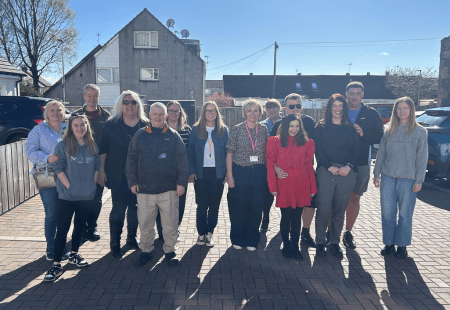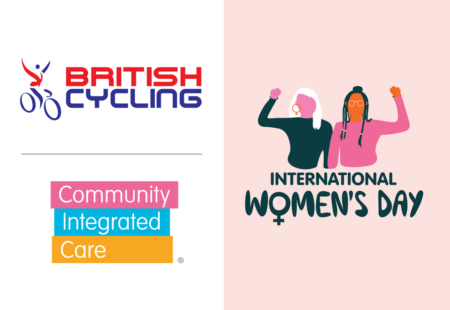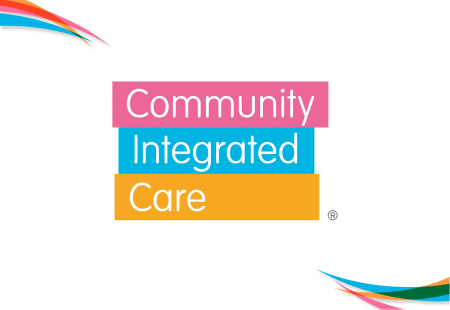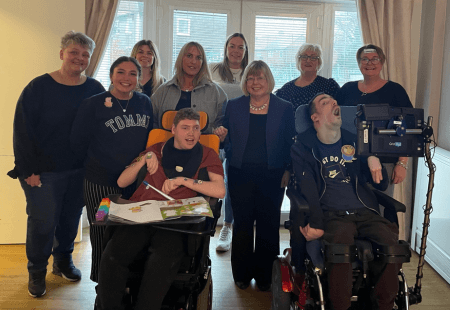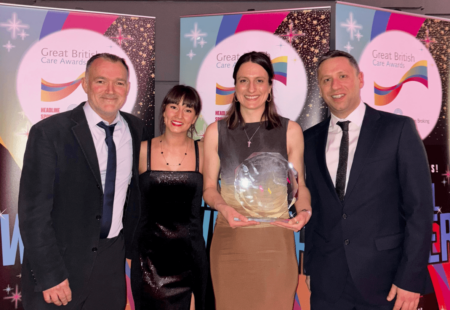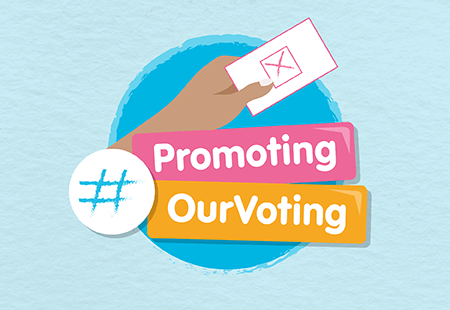
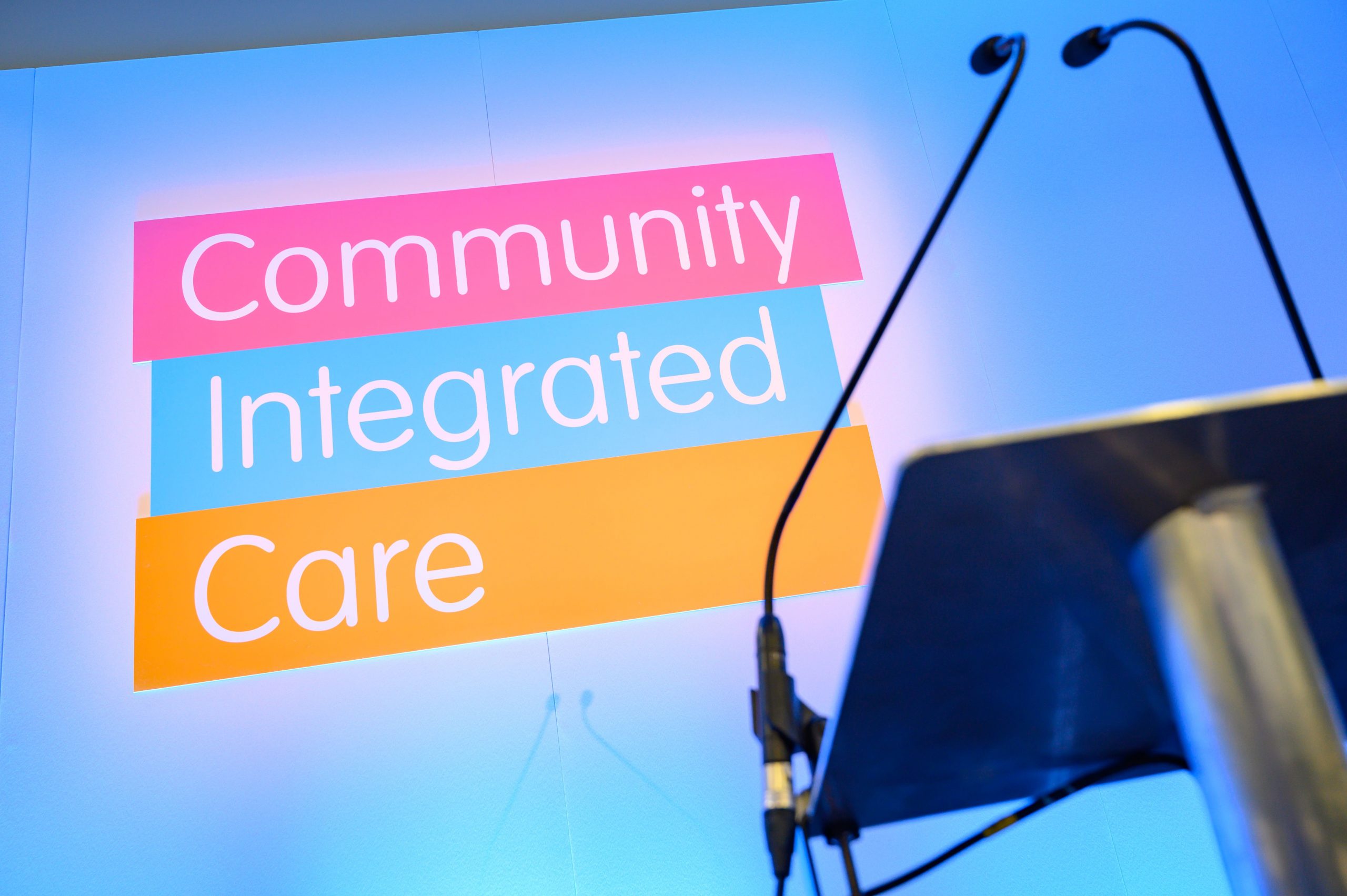
News
28/07/2022
Value of DRL underlined by Dividend Report
Disability Rugby League is improving lives and providing people with disabilities with an opportunity to achieve goals and access sport, according to new research from Manchester Metropolitan University Institute of Sport.
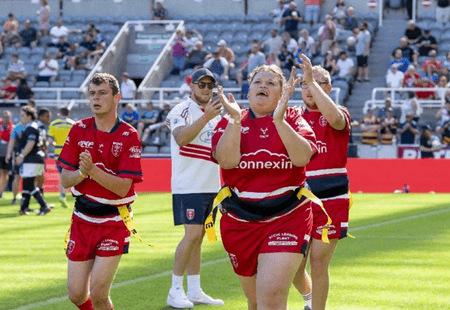 The Rugby Football League (RFL) has today (July 28) published the Disability Rugby League Dividend report – the third in a series of studies into the social and/or economic impact of Rugby League.
The Rugby Football League (RFL) has today (July 28) published the Disability Rugby League Dividend report – the third in a series of studies into the social and/or economic impact of Rugby League.
The report shows that for every £1 invested in Wheelchair Rugby League, Learning Disability Rugby League (LDRL) or Physical Disability Rugby League (PDRL), there is a social return of £3.39.
That is slightly higher, at £3.48 for our charity’s LDRL and at £4.10 for the PDRL.
The figures for investment by the players and their families, as opposed to other stakeholders such as volunteers, the RFL and sponsors, are even more striking – with a social return calculated at £9.84 for every £1 of investment.
The report follows the Rugby League Dividend Report in 2019, and “These Girls Can – The Wider Impacts of the Growth of Women’s and Girls’ Rugby League”, which was published last year – all of which were led by Manchester Metropolitan researchers.
Dr Nicolas Scelles, Senior Lecturer in Sports Management at Manchester Metropolitan University Institute of Sport, said: “As the Official University Partner for Rugby League World Cup 2021 we were delighted to contribute to this important report, which evidences the difference that rugby league makes to the way people with disabilities access sport and to the way people think about their disability.
“Our research demonstrates how Disability Rugby League generates positive social outcomes for players with disabilities, their families, volunteers and society overall.”
Through interviews with players and others involved in the three forms of Disability Rugby League, the report provides figures under four headings: Increased Confidence and Self-Esteem; Physical and Mental Well-Being; Expanding Social Circles and Connecting Families; and Perception of Disability.
Of the players surveyed:
- 82% reported improved self-confidence due to their participation in Rugby League;
- 91% said their life has improved;
- 90% of players stated that they have achieved things they never previously thought possible before playing Disability Rugby League, demonstrating that the sport provides opportunities to achieve goals, however big or small;
- 88% of PDRL players and 92% of Wheelchair RL players surveyed said they would be less active if they were not able to play Rugby League;
- 91% of Disability Rugby League players said the sport had provided new opportunities and experiences;
- 97% have made new friends through their participation, indicating the positive impact Disability Rugby League has on reducing the levels of loneliness and isolation of its players; and
- 88% of PDRL players say playing Rugby League has changed the way they think about their disability.
But as is stressed in forewords by Adam Hills MBE – the Australian comedian who plays PDRL for Warrington Wolves – and John Hughes Director of Partnerships & Communities at Community Integrated Care – the RFL’s social care partners who sponsor the Learning Disability Super League – the benefits of Disability Rugby League go well beyond those which can be calculated.
Hills said: “From a personal perspective I’ve seen Physical Disability Rugby League improve people’s physical and mental health, provide a community for people who may not have one, and give people with physical disabilities the chance to experience some things that able-bodied people often take for granted.
“As you read this report, you’ll see facts and figures, tallies and graphs, and a load of facts. But every single person that plays Disability Rugby League – whether it be Physical Disability, Learning Disability, or the Wheelchair game – has a story like mine. A story of an improved quality of life, of a happier disposition, of better health.
“For people with disabilities, sport is like a public building. All we ask is for a way to get in.”
John Hughes added: “It was an educated experiment when Community Integrated Care first invested in Rugby League. It, frankly, isn’t what care providers normally do. As a charity, it is so important that we use our resources responsibly to achieve an impact, and I felt that we could do that in Rugby League, because of the values it upholds.
“I could never have imagined quite how big things could get. Right now though, all I can see is possibilities. This publication is the opening chapter of what we will achieve together, not the final volume.”
Ralph Rimmer, the RFL Chief Executive, said: “The timing of this report is neat, as we look forward to hosting the Rugby League World Cup in England. It will be the most inclusive in history, providing Wheelchair Rugby League with an unprecedented national platform for us to celebrate the athleticism and personal stories of the players – and now with a demonstration four-team PDRL event also included in the schedule.
“Learning Disability Rugby League also has strong links to the World Cup, through Community Integrated Care’s Inclusive Volunteering Programme supported by Sport England – and one of the most memorable occasions so far in 2022 came at the St Helens community club Portico Vine, when a number of LDRL stars took the stage at one of the superb new facilities funded by the World Cup’s CreatedBy programme to explain how Rugby League had transformed and enriched their lives.
“I defy anyone not to be inspired by reading the Disability Rugby League Dividend, whether a quick flick or a detailed study. And as John Hughes says in his foreword, the most exciting thing is that this is just the start.”
